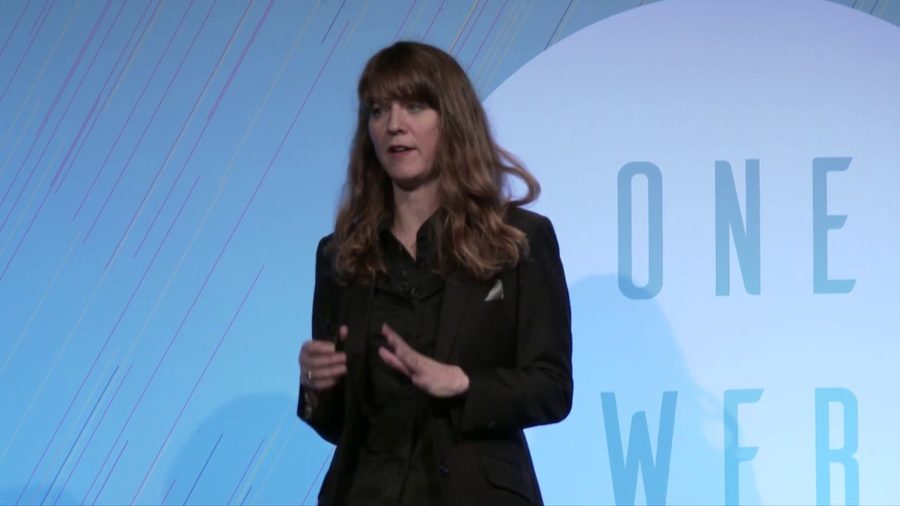Hello. This is the first talk I’ve ever given with slides, so we’ll see how that goes. I was asked today to speak about web literacy. As one of the executive directors of CASH Music, a nonprofit who’s focused on empowering musicians on the web with open source tools and education, this is something that I work on and think about a lot.
I think oftentimes when we think about web literacy we think about things like skills—learning skills, building on the web, understanding how the Internet works. All of which is very important but doesn’t speak to why the web works like it does. I think it’s deeply important that we add a working knowledge of business and business models to what it means to be web-literate. The sites that we use, there’s big money behind them, and there’s even bigger profit motives in front of them. We need to be able to think critically about where we build our communities, about what they’re doing with our data, and about when—not if—they monetize us.
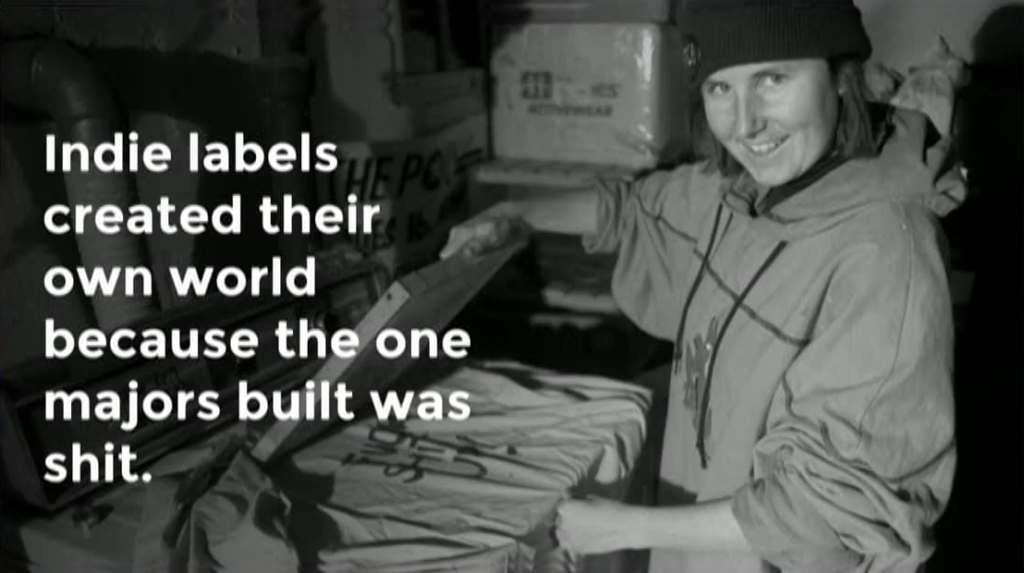
So, I apologize for the swearing. I’ll try not to do it very much. It naturally just happens. But I came into the music industry as a musician about twenty-five years ago. I started tat an independent record label based in Olympia, Washington in the 90s. That’s important because we were doing something that we believed was very political. We were trying to build business models outside of the corporate structure, outside of the major label world. We believed it was important to put artists first, to make artists our partners in order to ensure that other voices were heard, other than just what the corporate structure wanted to hear. So I came into this industry thinking about business models politically and I’ve never stopped.
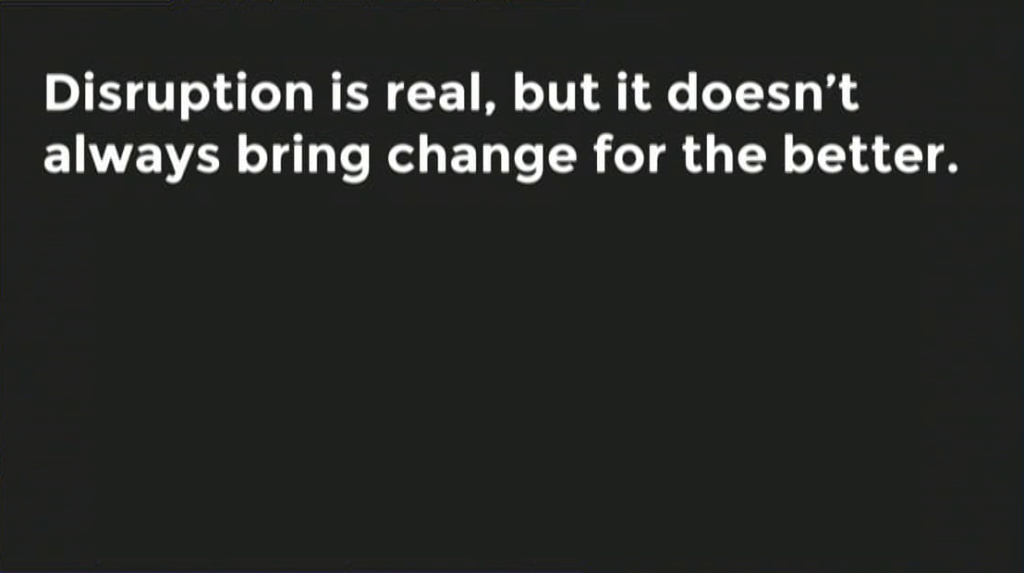
It also means that I had a front-row seat to the dawn of the digital era, and saw all the destruction that ensued. It affects artists’ lives, livelihoods, and it still does. I have seen literally hundreds if not thousands of music tech startups come and go in that time period. They have all told me they were the future of music. I have watched as freemium models have become premium ones. And I’ve seen artists build communities on closed platforms, only to watch those platforms implode, and then watched them go on to the next closed platform.
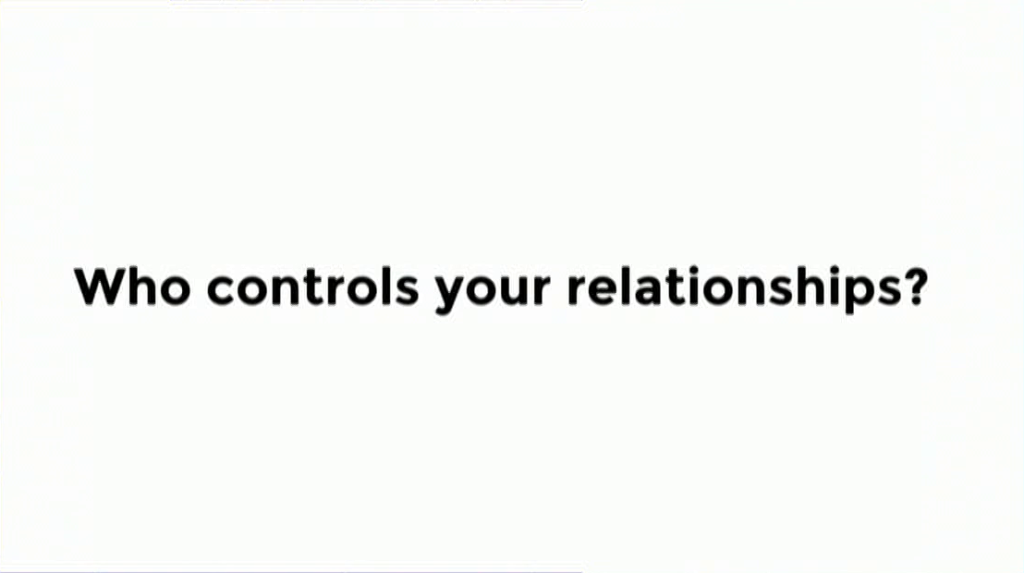
If anyone here uses a Facebook page at all for any sort of promotion—events promotion, project promotion—you know that you don’t have access to your audience. They control that relationship, not you.
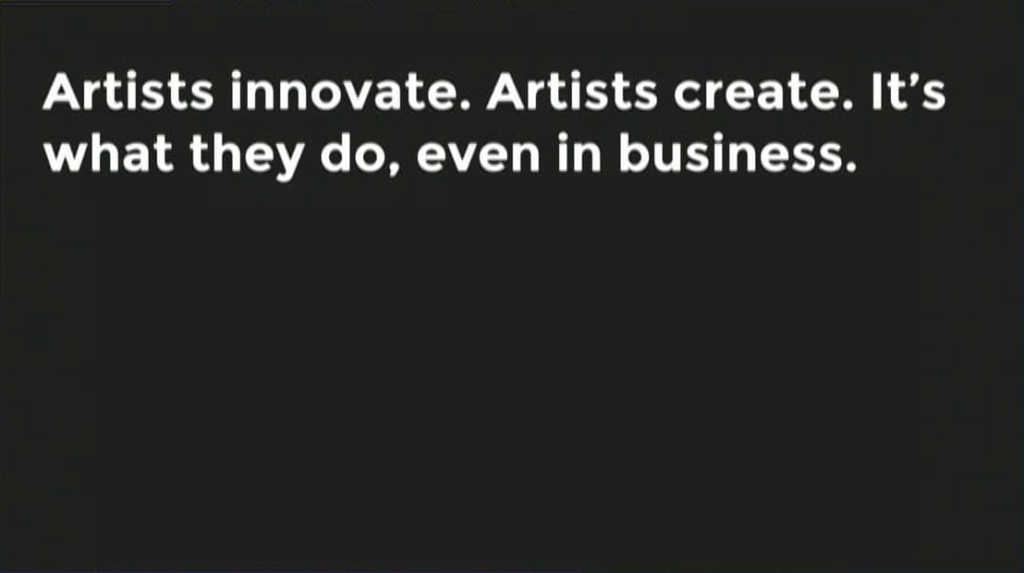
I’ve also seen artists embrace the open web and try new business models. They are innovators at the core of what they do, and when they’re not scared of the Internet, kind of brilliant things can happen.
So, one of the founders of CASH Music is an artist named Kristin Hersh. She was in a band in the 90s called Throwing Muses and she built up a very strong core audience of supporters. She wanted to figure out a way to then let them support her directly. So nine years ago she built the very first subscription service. It was the first tool that CASH built, it’s how she makes her living to this day. She is able to release records, to own her own copyright, to go on tour, all under her own control. Which is massively inspiring.
She was also the first artist to sell MP3s directly. We’ve also worked with folks like Run the Jewels, who have given away their first two records for free to their fans. They’ve become one of the most influential rap groups in the world for a variety of reasons, but I think it’s really important to look at how they distributed their music to their fans. It shows a level of respect kind of like none other. You know, you trust that your fans are there for you. And they are. All they do is ask for an email address in exchange for a download of a free record. They do not exploit that email list. They only use it when they’re going on tour or they have a new album or they have new merchandise. And their fans are very happy to support them.
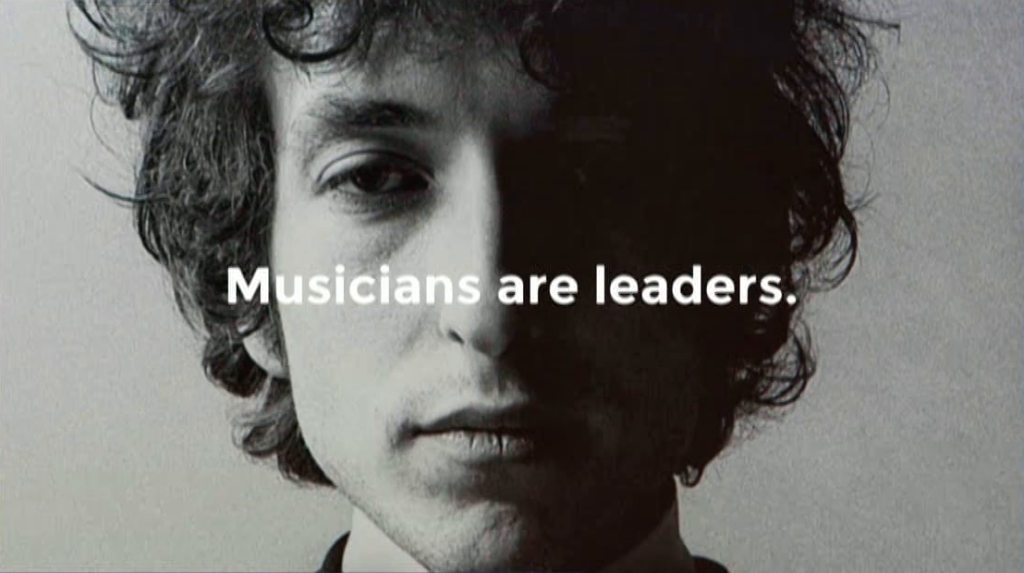
Musicians are leaders. If you think of any cultural movement throughout history, they’re sort of at the forefront. Think about the Civil Rights Movement. Think about the anti-war movement. Third-wave feminism. Second-wave feminism, frankly. There are always a song and a musician, and music is at the core of it. Think of Bob Dylan’s “Masters of War” or Sam Cooke’s “A Change is Gonna Come” or Public Enemy’s “Fight the Power.”
Musicians are also leaders online. They drive a lot of traffic. If you look at the top-followed accounts on Instagram and Twitter, 75% of them are musicians. Musicians and music got us to torrent. Torrents are terrible. It’s a terrible UX. And people wanted music so badly they learned how to do this.
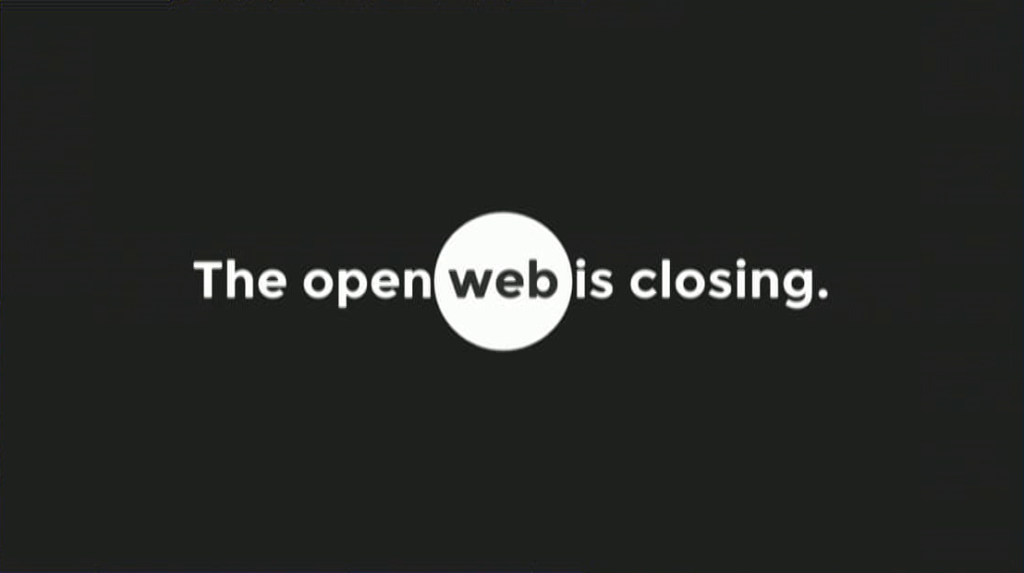
So the Internet, this place of immense possibility and freedom is closing. We are seeing users go for the easiest-to-use services without a second thought to their privacy, their data, or the long-term effects of where they’re building their communities online—or their businesses online.
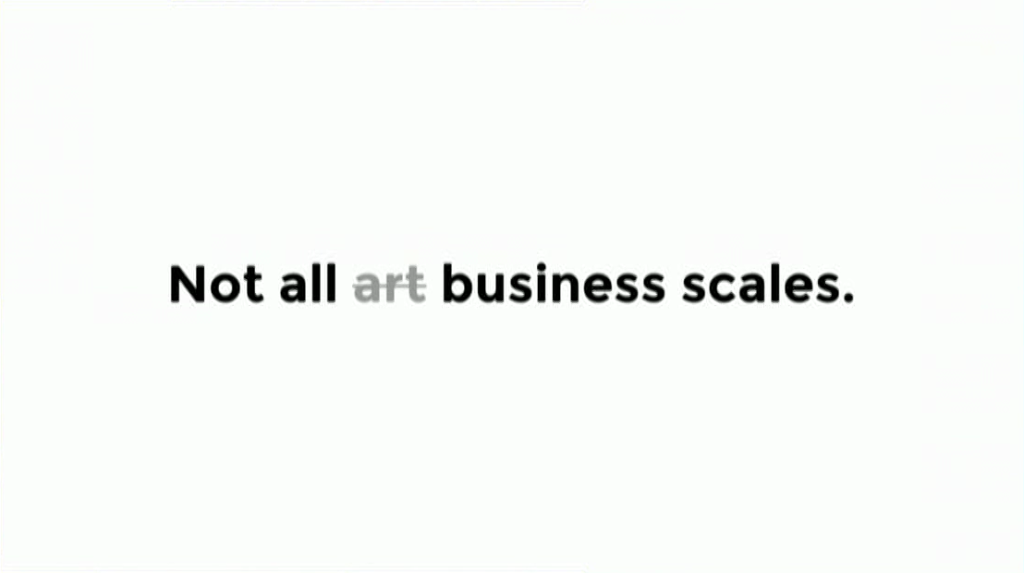
VC funding has led to an obsession with scale. But here’s the thing: not all business scales, not all art scales. Scale is a shitty measure of impact. Scale means that everything has to get bigger and bigger and bigger and bigger and bigger. And if we demand that of the web, we’re going to miss out on small changes that actually change lives.
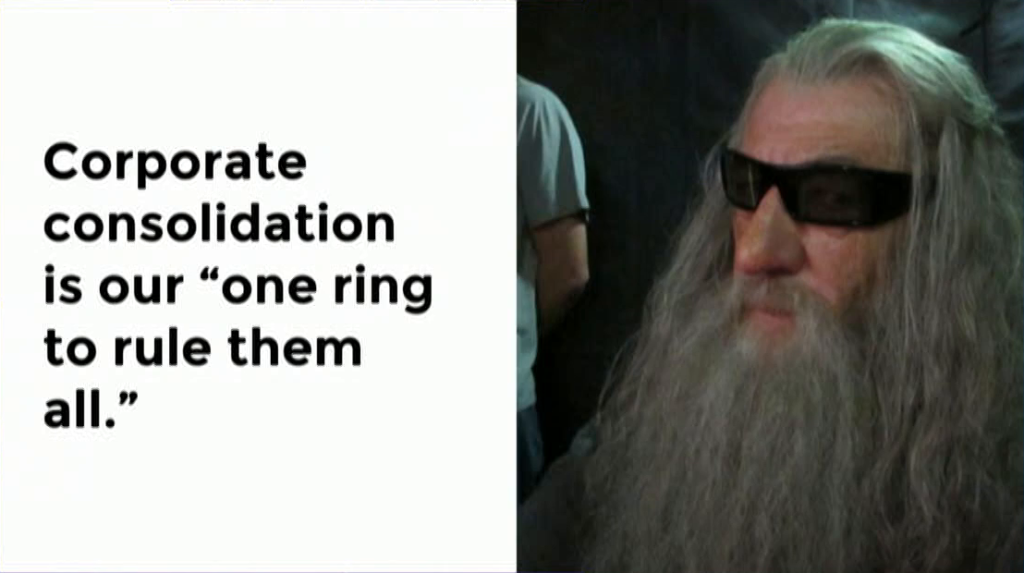
Sorry, I didn’t make the slides so they’re cracking me up. So we see these companies, these startups, they began in this giant hole. There’s this deficit that they have to make up. And…so often, they don’t. We see over and over again—either by acquisition or implosion—the largest corporations in the world taking control of these new ideas. I’ve been working on this chart, actually— And I wish it was done right now. But it’s a very easy way to see maybe the top twenty music tech companies, and then where they’ve been siloed into. You know, Topspin went to Apple, it’s BandPage went to Spotify and then to YouTube. It’s just watching everything go into these very small, consolidated silos.
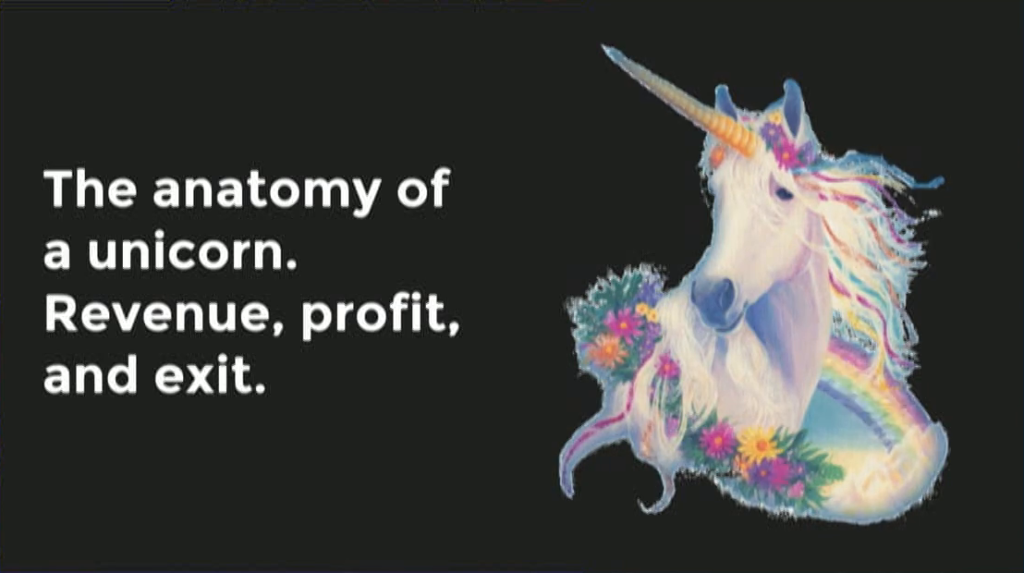
So we’re going to talk about Spotify, and I don’t want to talk about whether or not streaming is profitable for artists. That’s a totally different conversation. What we need to talk about is is Spotify profitable at all as a business? They have posted exactly one profitable quarter, in one territory, ever. It was 2014 in the UK. They recently took on another billion dollars in debt, meaning that there are now two billions dollars in debt. And they are talking about acquiring another in-debt music tech service, SoundCloud.
So let’s think about that for a second. We know that Spotify has to pay out 70% of all income to rightsholders. So that’s record labels, that’s distributors, occasionally that’s artists directly—not very often with Spotify. But 70% just goes out.
We also know that in order to get a licensing deal in the United States they were asked to give equity to the major labels. That is an undisclosed amount; we don’t know how much it is. But it’s something the major labels take in and they do not have to share with their artists.
So we’re looking at Spotify having to pay back $2 billion in debt on less than 30% of all of their income, as well as pay for all of their overhead. Doesn’t really seem likely. We’ve seen Rdio lose in this space. There are rumors that TIDAL is going to be acquired by Apple. Next week that could be Google. You never know.
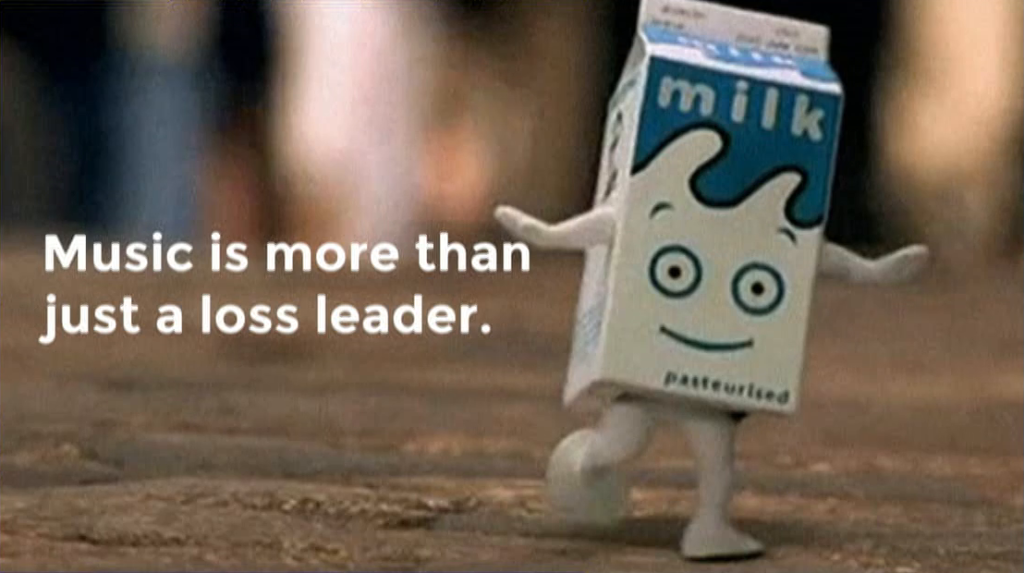
But I think what we’re seeing is that streaming is a business that’s only going to work for people that are trying to sell you other things. For people that are trying to sell you phones or trying to mine all of your data. And that’s a problem. Music is too important for that. I think when you put so much corporate control into what we’re listening to, you’re going to miss out on voices. You’re going to miss out on really important voices. If you don’t think corporate structures are going to censor what we listen to, and what we discover, and how we find things, then you’re not paying attention. That is what will happen.
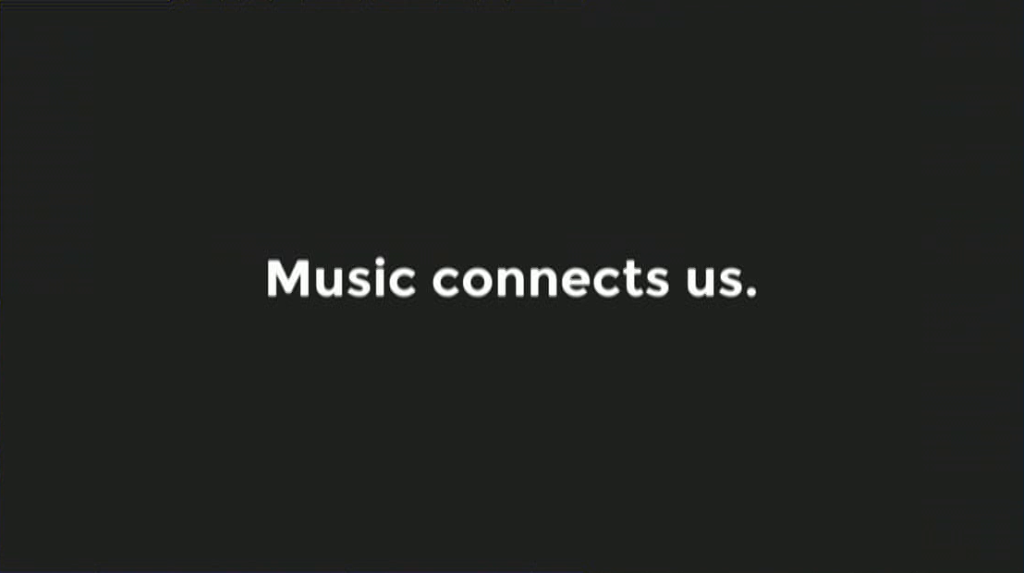
So, music connects us in ways that almost nothing else does. It’s the universal language. It connects people across physical barriers, societal ones, mental ones. It is the way that we can truly find empathy with one another.
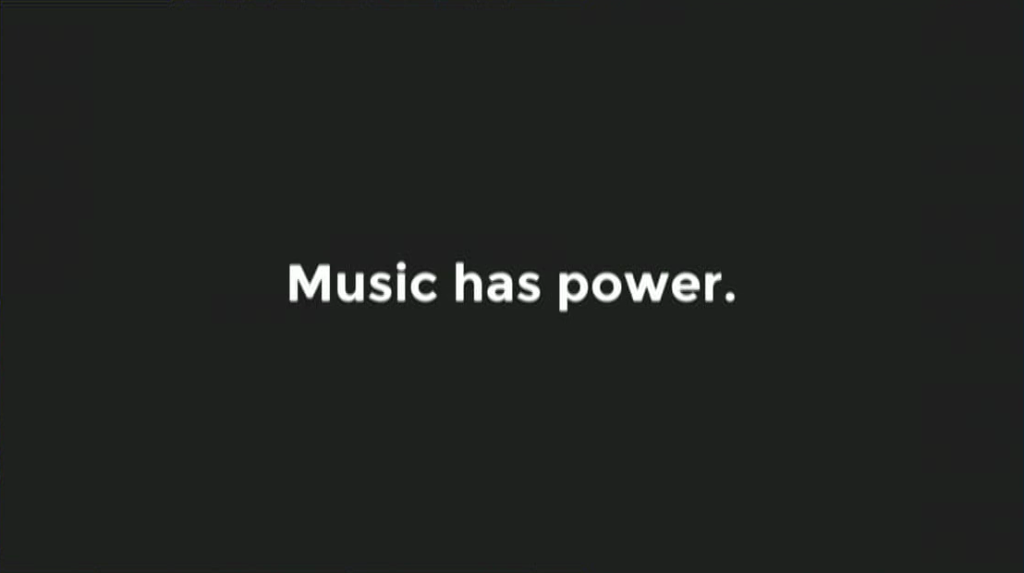
It also has power. It gives voice to the voiceless. It gives hope to the hopeless. And if we do not have a variety of voices out there being listened to and being heard, then we’re all missing out.
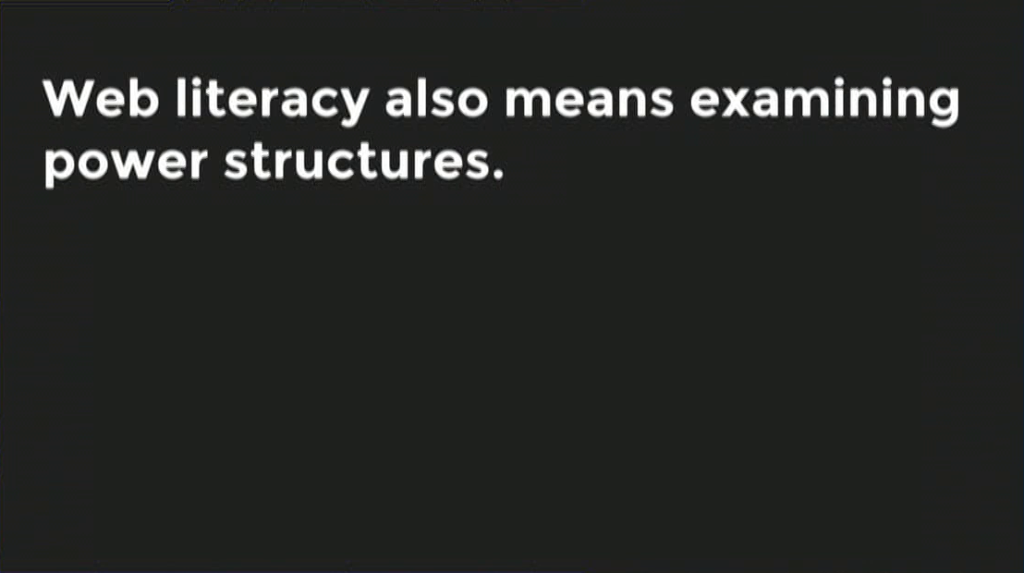
So, I know we’re all overwhelmed. We’re all oversaturated. We’re all overworked. And it’s hard to really think about these things. But we must. We’re all inundated with clickbait, and with this never-ending election cycle, and with social media. But it is vital that we think about where we’re building our communities online, how we’re building them, and what the long-term effects are.
We talk about the open web like it’s a code problem. It’s a culture problem. If we had artists embracing the open web, understanding what it means, talking to their fans about it, we could really see big changes. We need cultural leaders to continue to lead us on this path to the open web.
Sarah Marshall: Okay, who has a question for Maggie? I’m looking out at you.
Vail: None.
Marshall: Nobody has a question for Maggie? Let me jump in, then, and ask you a question. So we were talking just before about what this means for the music industry as a whole. What do you see happening in the next couple of years, etc., from your vantage point?
Vail: That is a very good question. I see people getting less and less scared of the web. Which is something that needs to happen. I also see artists getting more and more control of their careers. There’s no reason why anyone should ever sign a contract in perpetuity ever again. You have control and power. And while I’m not going to say that labels are a bad thing—I worked at one for seventeen years; I can see that they have real power. But understanding what that relationship is, how those contracts look, and ultimately keeping your copyright and the rights to your own art are vital.
Marshall: Another optimistic thought. Oh, we do have a question in front.
Audience 1: Hello. You didn’t talk so much about what CASH Music does. I know a little bit about your model. Do you think it will be able to scale up to an extent that it can make a difference to this problem you describe?
Vail: Yes, I do. So, I can give a brief overview of CASH. We’re a nonprofit, we build open source digital tools—so we’re everything from a shopping cart to subscription service to tour date management. Kind of anything that an artist would need to connect directly with their fans. We have a hosted version and a distributed version, but what we really try to do is tell artists to make their web site the central focal point for their interactions. Which sounds crazy but it’s true.
And then we pair that with education. So we’ve been doing education within the platform with those tools, but recently just launched a publication called Watt that is dedicated to talking about the economic and health and technology issues that face artists. So we’ve done a lot of how-tos just explaining copyright and trademark, why you need to set up your your band as a business—that sort of thing. But we’ve also had a lot of first-person artist stories about things that have worked for them or not worked for them. And we’re moving into research and case studies as well.
But yeah, I mean the thing about CASH is we don’t actually need to scale. I know that sounds crazy but it’s… We’re three and a half people. We’ve been around for nearly ten years. And we’ve built hundreds of projects directly with artists to make sure that the tools work for them. That is one of the things, and one of the problems I see with technology, is that so often companies start up and think they have some kind of answer to a problem that doesn’t exist. And we do this flipside of that. We’re building solutions to problems that are there.
Marshall: Right, let’s thank Maggie.
